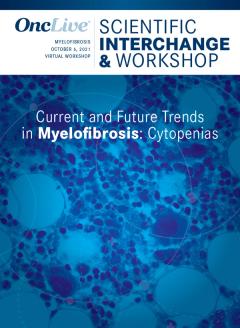
Dr. Harrison on the Current State of Treatment in Myelofibrosis
Claire Harrison, MD, FRCP, FRCPath, discusses the current state of treatment in myelofibrosis.
Claire Harrison, MD, FRCP, FRCPath, professor of myeloproliferative neoplasms, clinical director, NHS Guy’s and St Thomas’ NHS Foundation Trust, discusses the current state of treatment in myelofibrosis.
Treatment selection for patients with myelofibrosis is largely dictated by disease stage and patient-specific clinical features, Harrison explains. For example, a low-risk patient without prominent disease features is best suited for active surveillance. However, therapeutic strategies, such as interferon, are being evaluated for these patients because in other diseases, such as breast cancer, active surveillance would never be recommended for patients with early-stage disease, Harrison explains.
For patients with higher-risk myelofibrosis, stem cell transplant can be considered, Harrison says. Patients who are ineligible for transplant are treated based on their disease-related symptoms with transfusion or erythropoiesis-stimulating agents for anemia or JAK inhibitors for splenomegaly, Harrison concludes.







































